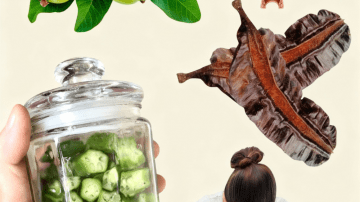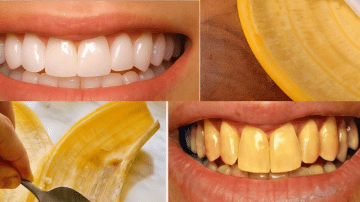Imagine stepping into your lush garden, expecting the soothing scent of blooming flowers, only to spot tiny reddish-brown critters crawling among your plants. Could these be bedbugs? And if so, will a quick sprinkle of salt—a trick buzzing across online forums—send them packing in minutes? This tantalizing promise has captured the attention of gardeners everywhere, but is it a miraculous fix or just another gardening myth? Let’s dive into the truth about bedbugs, why salt falls short, and the science-backed solutions that will truly safeguard your outdoor haven. Buckle up—this journey will arm you with practical, plant-friendly strategies to keep your garden pest-free!

🕵️♂️ Do Bedbugs Really Invade Your Garden?
The idea of bedbugs lurking in your garden can spark panic, but let’s clear the air. Bedbugs (Cimex lectularius) are notorious for haunting indoor spaces—think mattresses, furniture crevices, and cozy wall cracks—where they can stay close to their favorite food source: human blood. These sneaky pests thrive in warm, stable environments, making your home far more appealing than your garden.
If you’re spotting “bedbug-like” insects outdoors, don’t jump to conclusions. They’re likely imposters—harmless critters like firebugs, boxelder bugs, or beetles that share a similar reddish-brown hue. These look-alikes love plants and outdoor spaces but pose no threat to you or your home. Identifying the pest is the first step to ensuring you’re not wasting time on ineffective remedies like salt. Grab a magnifying glass, compare the critters to online images of bedbugs, and confirm what you’re dealing with before taking action.
🧂 The Salt Myth: Why It Won’t Work
The internet loves a good DIY hack, and sprinkling salt to banish bedbugs sounds like a cheap, easy win. After all, salt works wonders on soft-bodied pests like slugs, dehydrating them on contact. So, why doesn’t it work for bedbugs? Let’s break it down:
1. Bedbugs Have Armor
Unlike slugs, bedbugs are equipped with a hard, waxy exoskeleton that acts like a shield, protecting them from dehydration. A sprinkle of salt won’t penetrate this tough exterior, rendering it useless against these resilient pests.
2. They Don’t Eat Salt
Bedbugs are picky eaters—they feed exclusively on blood, not plant matter, food scraps, or salt. Scattering salt in your garden won’t lure them in or poison them. It’s simply not on their menu.
3. Salt Won’t Reach Hidden Eggs
Even if salt could harm adult bedbugs, it wouldn’t touch their eggs, which are often tucked away in tiny crevices. Bedbugs are masters of hide-and-seek, and a surface-level sprinkle won’t disrupt their lifecycle.
4. Salt Harms Your Garden
Here’s the kicker: pouring salt into your soil can wreak havoc on your plants. Excessive salt alters soil pH, dehydrates roots, and can even kill off your prized flowers or veggies. So, while you’re trying to save your garden, you might accidentally sabotage it.
The verdict? Salt is a kitchen hero, but it’s no match for bedbugs. Instead of wasting time on this myth, let’s explore solutions that actually work.
🌱 Science-Backed Alternatives to Protect Your Garden
If salt isn’t the answer, what is? Fortunately, there are safe, effective, and garden-friendly methods to tackle bedbugs (or their look-alikes) without harming your plants or soil. Here are five proven strategies to reclaim your outdoor space:
1. 🌾 Diatomaceous Earth: Nature’s Tiny Assassin
Diatomaceous earth (DE) is a natural, powdery substance made from fossilized algae. Its microscopic, razor-sharp edges scrape the waxy coating off insects, causing them to dehydrate and die. Sprinkle food-grade DE lightly around outdoor furniture, garden benches, or cracks where pests might hide. Be sure to reapply after rain, and avoid overuse to keep your plants safe.
2. ☀️ Heat Treatment: Cook the Critters
Bedbugs can’t survive temperatures above 120°F (49°C). If you suspect bedbugs on outdoor cushions, rugs, or small garden items, seal them in black plastic bags and place them in direct sunlight for a day. The trapped heat will kill both bugs and eggs. This method is chemical-free and highly effective for movable items.
3. 🍶 Vinegar Spray: A Quick Contact Killer
Mix equal parts water and white vinegar in a spray bottle for a simple, non-toxic solution. Spray directly on visible bugs to disrupt their outer layer and kill them on contact. While vinegar won’t eliminate hidden eggs or prevent reinfestation, it’s a great spot-treatment for immediate results. Avoid spraying directly on delicate plants to prevent leaf damage.
4. 🌿 Herbal Deterrents: Repel with Nature’s Scents
Certain herbs, like lavender, thyme, and mint, have natural pest-repelling properties. Place sachets of these dried herbs near outdoor seating areas or garden beds to discourage bugs from settling in. Not only do they help keep pests at bay, but they also add a delightful fragrance to your garden. For an extra boost, plant these herbs directly in your garden for a living barrier.
5. 🧹 Vacuum and Clean: A Simple First Strike
For outdoor furniture, cushions, or wood piles, a thorough vacuuming session can work wonders. Use a handheld vacuum with a crevice tool to suck up bugs and eggs from cracks and surfaces. Dispose of the vacuum bag immediately to prevent any escapees. Regular cleaning reduces pest numbers and makes other treatments more effective.

⚠️ Safety First: Tips to Protect Your Garden and Family
Before you dive into pest control, keep these precautions in mind to ensure safety and success:
Confirm the Pest
Misidentifying bugs can lead to wasted effort. Use online resources or consult a local extension service to verify whether you’re dealing with bedbugs or harmless doppelgangers.
Protect Your Plants
Avoid remedies like salt or excessive DE that can harm soil or foliage. Always test sprays like vinegar on a small plant area first to check for adverse effects.
Keep Kids and Pets Safe
Store DE, vinegar, and other treatments out of reach of children and animals. When applying DE, wear a mask to avoid inhaling the fine powder.
Know When to Call a Pro
If you’re facing a large or persistent infestation, don’t hesitate to contact a pest control expert. They can identify the problem and apply targeted treatments without risking your garden’s health.
🌸 Why It Matters: Keeping Your Garden a Sanctuary
Your garden is more than just a patch of greenery—it’s a sanctuary for relaxation, beauty, and connection with nature. The last thing you want is to worry about pests ruining the vibe. By skipping ineffective hacks like salt and embracing proven methods like diatomaceous earth, heat treatments, and herbal deterrents, you can protect your outdoor oasis without compromising its health or charm.
✨ Take Action Today: Reclaim Your Garden!
Don’t let the bedbug salt myth derail your gardening dreams. Armed with the right knowledge, you can tackle pests effectively and keep your garden thriving. Start by inspecting your space to confirm the pest, then choose from the arsenal of natural remedies we’ve shared. Whether it’s sprinkling diatomaceous earth, harnessing the power of heat, or adding fragrant herbs, you have the tools to win this battle.
So, grab that vinegar spray, plant some mint, or vacuum those cushions—your garden deserves to shine, pest-free and vibrant. Which method will you try first? Your outdoor paradise is just a few smart steps away!






